Europe steps back in time to revive ties with Iran
by Robin Emmott,
2016-03-10 06:13:00.0
A FEW months after US President George W Bush branded Iran part of an "axis of evil" in 2002, the European Union (EU) took a different tack and started talks with Tehran to increase economic ties, hoping that business would help rapprochement.
The talks collapsed over Iran’s nuclear ambitions, but more than a decade later, the EU looks willing to try again for a pact to capitalise on the historic nuclear deal with Iran that brought an end to United Nations (UN) sanctions, officials say. At a meeting on Monday, EU foreign ministers will broach the subject of how the bloc, once Iran’s top trading partner and its second-biggest oil customer, can pursue an agreement on trade, investment and political dialogue despite concerns about human rights and Tehran’s role in Middle East conflicts.
"This is just the beginning of a journey," Italian Prime Minister Matteo Renzi told Iranian President Hassan Rouhani in Rome in January, before signing billions of euros of deals in sectors ranging from steel to shipbuilding.
Many in the EU are eager to support signs that Iran, a $400bn economy, is opening up and to find new markets for European investors facing weak growth at home.
The 28-member union is also discussing helping Iran in its stalled bid to join the World Trade Organisation (WTO), diplomats say, leveraging the EU’s power as the world’s largest trading bloc to seek favour with a country sitting on vast gas reserves.
But Brussels is also troubled by Iran’s human rights record, including more than 1,000 executions last year, and alarmed by its ballistic missiles and its funding of blacklisted militant groups.
The Iranian Revolutionary Guards’ support for President Bashar al-Assad puts Tehran at odds with the West in Syria.
One first step is a planned visit by EU foreign policy chief Federica Mogherini to Tehran in April, her second since the July 2015 nuclear deal and the first with a group of senior commissioners from the EU’s executive. That could be followed by the opening of a permanent EU diplomatic mission in Tehran later this year.
An EU-Iran co-operation accord would give Brussels a bigger role in market reforms required for Iran to join the WTO. It could help regain some of the business Europe lost to China during the sanctions era and also give the EU a legal basis to press for political freedoms in Iran.
A co-operation agreement — the same tool the EU is using to strengthen ties with communist Cuba — is modest, but served as a precursor to broader free-trade deals in Central America and Asia, giving duty-free access to the EU’s 500-million consumers.
"With Iran, we could go much farther than we can with Cuba because Iran is a market economy," says a senior EU official who negotiated on the failed attempt to reach an accord in 2002.
"This would give investors a framework and also a place for dialogue on the things we don’t like about each other," he says.
Unlike the US, which remains deeply suspicious of Iran and is keeping some of its financial sanctions, the EU saw relations flourish during Iran’s last reformist era in the late 1990s until disclosures about Tehran’s nuclear plans in 2002. The policy is delicate, however, and not just because of Iran’s unique dual system of Islamic and republican rule.
Europe wants to avoid alienating Saudi Arabia, Iran’s biggest rival and a US ally, and may send one of its most senior foreign policy officials, German diplomat Helga Schmid, to Riyadh when Ms Mogherini goes to Iran, diplomats say.
Saudi Arabia, alarmed over Iran’s coming in from the cold, has sought to deflate hopes that Tehran would be a bonanza for foreign investors. And at home, EU governments are divided on how quickly to move.
Italy wants to rebuild the lucrative relationship it enjoyed before UN sanctions were imposed on Iran in 2010.
Britain and France are also keen to do business, but have been outspoken in condemnation of Iran’s military support for Syria.
Reuters
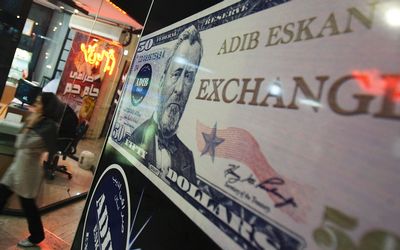
A BRIDGE TO REVIVAL: If the EU’s trade with Iran picks up, as many EU officials hope, the human traffic on bridges like this could get a lot heavier. Picture: REUTERS
A FEW months after US President George W Bush branded Iran part of an "axis of evil" in 2002, the European Union (EU) took a different tack and started talks with Tehran to increase economic ties, hoping that business would help rapprochement.
The talks collapsed over Iran’s nuclear ambitions, but more than a decade later, the EU looks willing to try again for a pact to capitalise on the historic nuclear deal with Iran that brought an end to United Nations (UN) sanctions, officials say. At a meeting on Monday, EU foreign ministers will broach the subject of how the bloc, once Iran’s top trading partner and its second-biggest oil customer, can pursue an agreement on trade, investment and political dialogue despite concerns about human rights and Tehran’s role in Middle East conflicts.
"This is just the beginning of a journey," Italian Prime Minister Matteo Renzi told Iranian President Hassan Rouhani in Rome in January, before signing billions of euros of deals in sectors ranging from steel to shipbuilding.
Many in the EU are eager to support signs that Iran, a $400bn economy, is opening up and to find new markets for European investors facing weak growth at home.
The 28-member union is also discussing helping Iran in its stalled bid to join the World Trade Organisation (WTO), diplomats say, leveraging the EU’s power as the world’s largest trading bloc to seek favour with a country sitting on vast gas reserves.
But Brussels is also troubled by Iran’s human rights record, including more than 1,000 executions last year, and alarmed by its ballistic missiles and its funding of blacklisted militant groups.
The Iranian Revolutionary Guards’ support for President Bashar al-Assad puts Tehran at odds with the West in Syria.
One first step is a planned visit by EU foreign policy chief Federica Mogherini to Tehran in April, her second since the July 2015 nuclear deal and the first with a group of senior commissioners from the EU’s executive. That could be followed by the opening of a permanent EU diplomatic mission in Tehran later this year.
An EU-Iran co-operation accord would give Brussels a bigger role in market reforms required for Iran to join the WTO. It could help regain some of the business Europe lost to China during the sanctions era and also give the EU a legal basis to press for political freedoms in Iran.
A co-operation agreement — the same tool the EU is using to strengthen ties with communist Cuba — is modest, but served as a precursor to broader free-trade deals in Central America and Asia, giving duty-free access to the EU’s 500-million consumers.
"With Iran, we could go much farther than we can with Cuba because Iran is a market economy," says a senior EU official who negotiated on the failed attempt to reach an accord in 2002.
"This would give investors a framework and also a place for dialogue on the things we don’t like about each other," he says.
Unlike the US, which remains deeply suspicious of Iran and is keeping some of its financial sanctions, the EU saw relations flourish during Iran’s last reformist era in the late 1990s until disclosures about Tehran’s nuclear plans in 2002. The policy is delicate, however, and not just because of Iran’s unique dual system of Islamic and republican rule.
Europe wants to avoid alienating Saudi Arabia, Iran’s biggest rival and a US ally, and may send one of its most senior foreign policy officials, German diplomat Helga Schmid, to Riyadh when Ms Mogherini goes to Iran, diplomats say.
Saudi Arabia, alarmed over Iran’s coming in from the cold, has sought to deflate hopes that Tehran would be a bonanza for foreign investors. And at home, EU governments are divided on how quickly to move.
Italy wants to rebuild the lucrative relationship it enjoyed before UN sanctions were imposed on Iran in 2010.
Britain and France are also keen to do business, but have been outspoken in condemnation of Iran’s military support for Syria.
Reuters


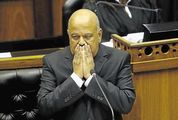
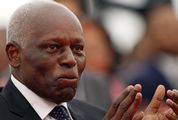
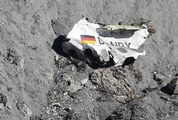

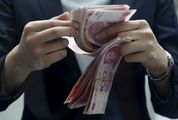

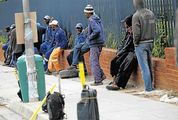
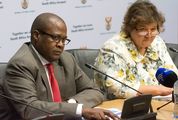
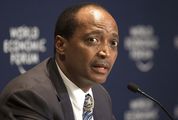









Change: 0.40%
Change: 0.47%
Change: -0.49%
Change: 0.53%
Change: 1.03%
Data supplied by Profile Data
Change: 1.71%
Change: 1.28%
Change: 0.40%
Change: 0.00%
Change: 1.64%
Data supplied by Profile Data
Change: -1.27%
Change: 0.00%
Change: 0.05%
Change: -0.08%
Change: 0.35%
Data supplied by Profile Data
Change: -0.02%
Change: 0.21%
Change: -0.06%
Change: 0.53%
Change: 0.70%
Data supplied by Profile Data